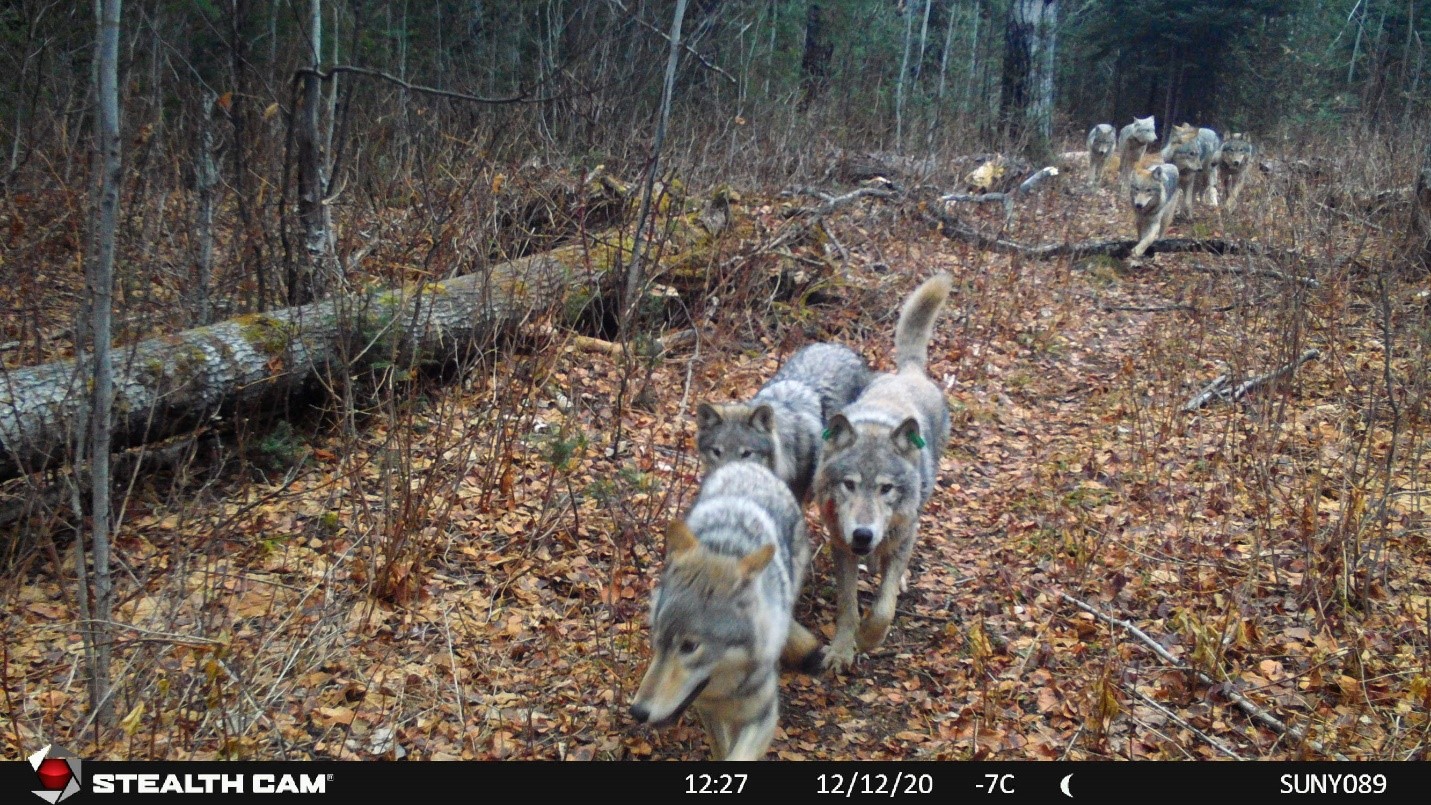News Release

NPS
|
Subscribe
|
Contact: Liz Valencia, 906-483-7721
Contact: Mark Romanski, 906-231-2988
Initial results are in from collaborative efforts to restore the wolf population and predator-prey dynamics on Isle Royale National Park. Over a two-week period in late April and early May, personnel from the National Park Service (NPS), State University of New York College of Environmental Science and Forestry (SUNY ESF), Grand Portage Band of Lake Superior Chippewa, U.S. Department of Agriculture, Wildlife Services, and Michigan Technological University captured five wolves on Isle Royale to attach GPS radio collars for evaluating spatial distribution and habitat use, predation and social structure of this fledgling population. The captures included a translocated male wolf originally caught on Michipicoten Island, Ontario (W012M) and three males and a female, all presumed to be born on Isle Royale in 2020. The capture of the four unmarked wolves further demonstrates reproduction and survival, important metrics for this restoration effort.
“As batteries wear out on the GPS collars on wolves originally translocated to Isle Royale, we lose their signal. The capture of wolves this spring was critical for us to continue our long-term monitoring of this population, in part by placing new collars,” said Jerrold Belant, SUNY ESF professor and researcher on the project. “Characterizing the activities of individual wolves in relation to pack formation, reproduction, and survival will greatly improve our ability to measure the success of this effort.”
When captured on Michipicoten Island in March of 2019, wolf W012M was estimated to be two to four years old. This wolf was in good condition in early May of this year and is now estimated to be 4 to 6 years of age. Caught in the same area where three of the unmarked wolves, two males and a female were captured; wolf W012M is presumed to be the breeding male of this pack pending confirmation from genetic analyses. The other wolf, a young male, was captured in a different area of the park.
Park biologists and research partners from SUNY ESF will use GPS data from these wolves to identify “clusters” of locations where wolves have spent extended periods of time. These data will be used to distinguish predation, rendezvous, rest, and den site locations. This location information will allow researchers to quantify reproduction and recruitment of the population.
Identifying a den site provides researchers with an opportunity to visit the location after wolves have moved on. At the site, researchers collect scat that will provide genetic evidence on the potential number of pups born there, as well as the ability to determine parentage and packmates. Continued scat collection at rendezvous sites, and repeated systematic searches for scat on the park’s trails, allows researchers to follow individual wolves through time and further estimate survival and reproduction.
“Like scientists all over the world, our restoration team adjusted to the impacts of the COVID-19 global pandemic,” said Mark Romanski, NPS biologist and project coordinator. “Winter capture operations were cancelled twice, and the annual winter population count in 2021 was cancelled, so the NPS adapted. Once again, our partners stepped forward to help ensure that the effort to live capture and collar wolves this past spring was a success and carried out safely. The ability to document reproduction and recruitment is essential for evaluating the restoration program’s success, and GPS collars are one of the most important tools in our toolbox.”
The NPS and its collaborators will continue to monitor this population of wolves and document ecosystem changes as they settle into the island environment. For further information on the population and on-going research and monitoring concerning this ecological restoration project please visit the NPS website page about wolves.
Last updated: August 18, 2021
